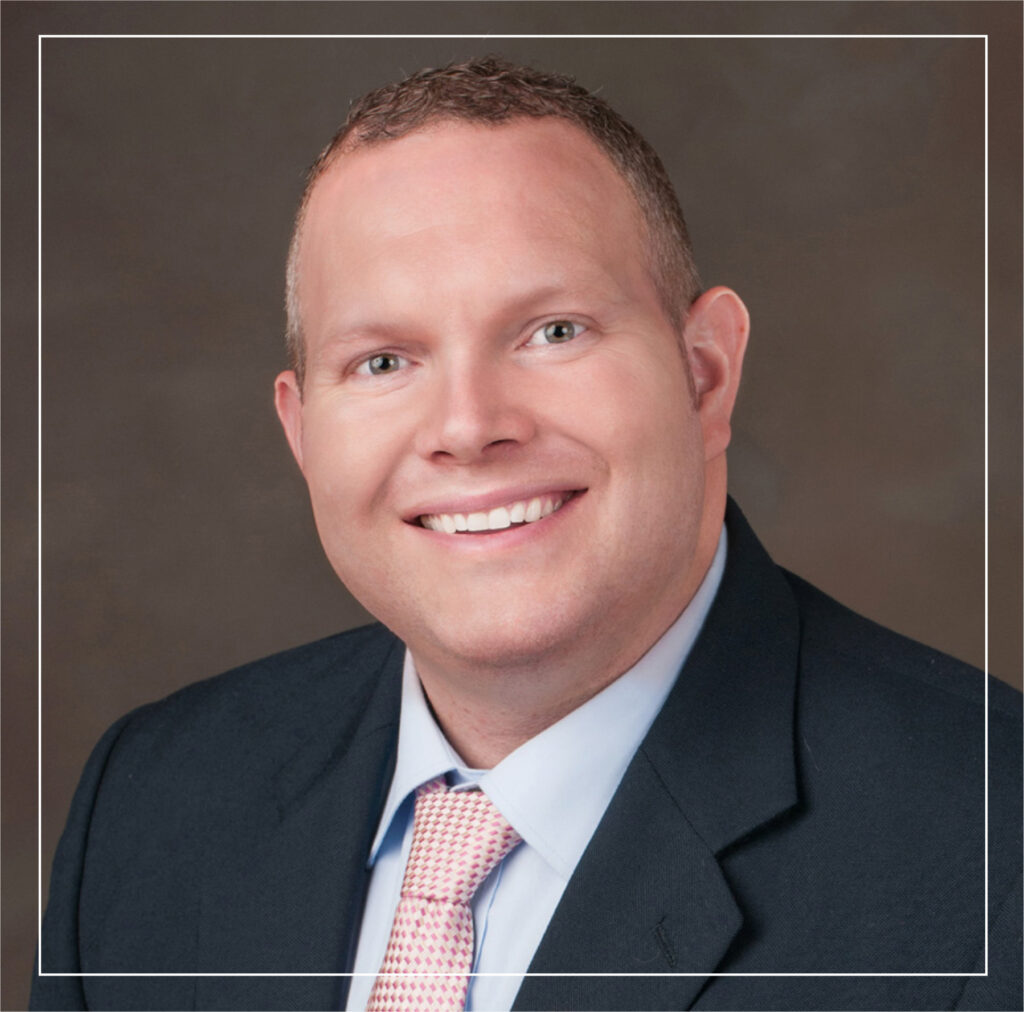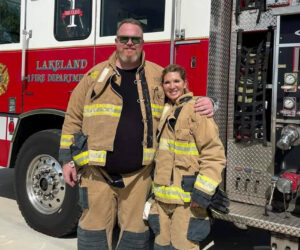Marion County looks to find ways to support its first responders.

First responders, including members of law enforcement, are more likely to die by suicide than in the line of duty according to the Centers for Disease Control and Prevention.
Experts on the subject point to one big risk factor: Some first responders avoid mental health services that could help them cope with trauma due to the stigma, real or perceived, about seeking help within professions that prioritize bravery and toughness.
Lisa Lynn, a licensed mental health counselor at Dove Wellness & Counseling in Ocala, along with mental health clinician Brian Freeman, recently completed the Redline Rescue Training through a University of Central Florida program dedicated to connecting firefighters and their families to trained peer providers and culturally competent clinicians in their times of need.
 “They are called to the scene of catastrophic events to make sense out of the senseless, provide comfort and save lives amid utter chaos and horrified bystanders,” Lynn explains. “The stress of maintaining their cool, masking any signs of distress in public, and then moving on to the next call or calls of the day, which could be equally horrific, operating on little to no sleep, is unique to first responders and makes them vulnerable to depression, anxiety and/or substance abuse IF these events are left unprocessed with a peer support team, trusted friend or a licensed professional.”
“They are called to the scene of catastrophic events to make sense out of the senseless, provide comfort and save lives amid utter chaos and horrified bystanders,” Lynn explains. “The stress of maintaining their cool, masking any signs of distress in public, and then moving on to the next call or calls of the day, which could be equally horrific, operating on little to no sleep, is unique to first responders and makes them vulnerable to depression, anxiety and/or substance abuse IF these events are left unprocessed with a peer support team, trusted friend or a licensed professional.”
Another challenge locally is an overwhelming workload that continues to grow. First responders have no control over population growth in Marion County, and law enforcement and fire departments have struggled to keep pace with the demand for services, even with significant increases to their budgets.
At a Marion County commission workshop last year, Marion County Fire Rescue officials reported to commissioners that from 2010 to 2022, they had an 8.06% increase in budgeted positions while their call volume increased by 65.17%.
The volume of calls for service firefighters and paramedics field during their grueling 56-hour workweeks has been a big challenge for some Marion County fire stations, which were experiencing twice the number of calls that is considered safe. Making matters worse, the department is shorthanded, requiring the crew members to work mandatory overtime after their 56 hours.
The Need Is Real
Leaders of Marion County’s law enforcement and fire departments were reminded just how important mental health wellness and peer support are this past year after two suicides within MCFR less than two weeks apart last January. There have been four deaths classified as suicides within that department since 2019; however, other department losses have left lingering questions about whether that figure is inaccurate.
MCFR Fire Chief Jim Banta noted that suicides have increased among firefighters and paramedics nationwide, even while it’s often difficult to track which deaths are suicides. The Firefighter Behavioral Health Alliance (FBHA) estimates that only 40 percent of firefighter suicides are reported.
Overcoming the challenges of meeting the emotional and mental health needs of his members has risen to the top of Banta’s very long list of needs for MCFR.
How does he plan to do that?
“By controlling the things we can control,” Banta says, adding that agency officials are looking for ways to ramp up mental health resources.
They’re also adjusting policies regarding discipline for substance abuse. Previously, substance abuse led to an automatic dismissal for an MCFR member, but Banta notes that the department has adjusted that policy and is now looking at substance abuse as a mental health issue. MCFR policy was updated last year to provide for “a last chance” option that would allow for addiction treatment before automatic dismissal.
Banta hopes the change will help the men and women in the MCFR feel more comfortable with coming forward if they need help or if they see one of their fire family members struggling with substance abuse.
Making Support Services More Readily Available
The Marion County Sheriff’s Office has increased the number of people who serve as chaplains. Previously, only one chaplain oversaw the needs of the almost 1,700 incarcerated people at the county detention facility and the almost 1,000 MCSO employees. That role has now been split between two chaplains, one focused primarily on inmates and the other on MCSO staff, according to MCSO Chaplain Vern Phillips, who has served the department in that role since 2018.
One of the things Phillips noted when he took the position was that the jail had quite a few programs in place to help provide spiritual support, but the agency did not have that type of proactive programming in place for its own staff.
Phillips is finishing his doctorate education program on trauma to complement the degrees he holds in pastoral counseling. He believes chaplains need to consider the entire well-being of those to whom they minister, which includes “mental, emotional, physical and spiritual” aspects.
He acknowledged that law enforcement has historically placed a lot of emphasis on physical well-being in order to have the strength that the job requires. But Phillips points to a “change in culture” that has seen more acknowledgement of the mental and emotional needs.
But Phillips is just one person, so he sought ways to reach more officers through different methods. He initiated the creation of a cellphone app with support content, started a regular podcast that officers can listen to “in their downtime,” and designed posters with QR codes that leads them to available resources.

MCSO has also organized training sessions for Phillips to speak to agency staff on coping with the pressures of the job.
“When we think of the stress that first responders deal with, we tend to only think about the cognitive impact. But it’s more than that, especially if they don’t deal with it,” he shares. “Many first responders live in a ‘constant state of fight or flight’ due to the nature of their shift work If there is no way to offset the high-stress, constant-vigilance state, it will wear on your body. Over time, the elevated cortisol in your body will physically affect the body.”
Phillips said when first responders experience a high-stress situation, it can take 12 to 24 hours for them to “re-regulate.” A two-days on, two-days off type of shift schedule and hopefully participating in enjoyable activities can help their nervous system relax and their heart rate and digestion return to a good state. But then they return to work, and the cycle starts anew.
Phillips has also implemented group Bible studies for agency staff.

“I still feel that there is a lack of the spiritual component and that is something that God has sort of laid on my heart to impact,” he notes.
The Marion County Hospital District has also tried to fill in the gaps for funding mental health wellness for first responders. In its 2023-24 budget, the district added $275,000 to provide additional counselors, like Lynn, who are specially trained to help first responders. Despite that, a district spokesperson noted the stigmas associated with seeking help remain.
Getting The Support They Need
Most first responders interviewed over the past year point to the support of their family to being key to maintaining their mental health. That support, however, can be strained when a 100-hour workweek, in the case of MCFR, leaves their families frustrated about managing a household without them.
In a 2021 report, the CDC pointed to studies correlating higher suicide rates among those with “relationship problems” and first responders because the very nature of their challenging work schedules and extreme family-work demands contribute to relationship strains magnifying the threat to this worker group.
Phillips hopes to reduce some of the family stressors that could add to angst with MCSO workshops on practical subjects such as budgeting.
Additionally, first responders interviewed over the past year pointed to “station family” and the “brotherhood” continuing to play significant roles in maintaining a member’s mental health.
“You know the old ways of, ‘Suck it up, buttercup’ when I started have drastically changed,” Banta says. “Then, there was no conversation. You would go to bad calls and see very bad things. It was only the camaraderie around the station, your station family, that usually supported you through all that.”
Banta notes that previously there “was really no acknowledgment of, ‘Hey, these things 20 or 30 years down the road are still going to be troublesome.’” But in the last 15 years, there has been a progressive shift to address the issue, such as debriefs to help process incidents.
“I think we have to be strong for the community, and sometimes that makes it hard to admit we need help,” he offers. “We’re all human. We’re all vulnerable and we all need some sort of support. As the fire chief, I have to be strong. Yet, it’s also important for me to show that I get help if I need it.”
Banta says he tries to stress to his crews that they remember, “Yes, we are involved in a lot of bad things, but we do so much good. In the same shift, you could deliver a baby on one call and then be the last person to speak to someone before they die on another.”
He quickly adds, “The responsibility is powerful, but it’s really the best career in the world.”
Jeff Gold had a long career as a first responder in law enforcement and fire services before being elected as a Marion County commissioner in 2016. He has since returned to fire service in a neighboring county. In a prior interview, he admitted to witnessing more than his share of horrors, some of which took longer than others to process.
Gold recalled arriving at an accident scene where three children were trapped in a car that was on fire. Despite his best efforts, including sustaining burns himself, he could not rescue the children. Experiences like that, he says, especially when children are involved, stay with him.
Lynn shares memories of growing up with a first responder.
“It was not the norm to speak with a counselor as it was considered a sign of weakness, perceived or real,” she recalls. “My own father, who served as a Metro-Dade Police Department officer in the worst of times during the 1980s riots, did not seek counseling despite being exposed to horrific acts of violence, mandatory overtime, staff shortages and lack of sleep. ‘Pull yourself up by your bootstraps, chin up and march on’ was his modus operandi.”
However, Lynn says, she is encouraged by the shift she is seeing among first responders.
“I am pleased to see leadership in Marion County embracing the importance of mental health and wellness that can be restored, maintained and sustained by working with a professional counselor,” she states. “The stigma is being reduced because awareness is being increased regarding the normalcy of talking to a neutral, qualified, professional who provides a safe place to ‘let it all out’ and process the unthinkable.
“First responders are human beings who need other human beings,” Lynn continues. “We need to continue to spread the news that the badge does not resolve the trauma behind the badge but having a safe place to lay it down will.” OS
TIPS FROM LISA LYNN, DOVE WELLNESS & COUNSELING
What signs should alert a first responder that they need to seek professional help?
Any observable change in their behavior, whether they notice it first, or if a peer, friend or spouse notices. These can include an inability to regulate their emotions, significant increase in intensity of emotions that are disproportionate to the event (punching a wall over spilled milk, for example), lack of effective performance at work, disruptions of sleep or appetite (too much or too little of either), experiencing difficulty maintaining important relationships, loss of interest in activities previously enjoyed, change in physical health (gut issues, migraines, fatigue, etc.), increased substance use or risky behaviors as a coping mechanism, unresolved trauma that is triggered by exposure to trauma on the job resulting in anxiety, depression or panic attacks.
 What advice do you have for how family and friends of first responders can support them?
What advice do you have for how family and friends of first responders can support them?
There is great value in listening. There is great value in just being there. Even in silence. Often, first responders do not want to ‘burden’ their spouses with details of calls they responded to so as to spare them. And they may not want to rehash the details themselves as their mental health was adversely impacted. Simply being present is enough. Allow them to speak at-will; give them space not to speak until ready. Do not try to fix the problem or delve for details that you may not be able to handle. Leave that part to trained professionals. In the meantime, support them as best you can, while allowing them to figure out their own coping strategies. Keep the lines of communication open, and do not take distressing behavior personally. Be on the lookout for any significant change in their behavior such as signs and symptoms of depression, anxiety or increased substance use, which could be potentially dangerous left untreated. Call a peer support hotline or join a support group to assist with your own support as needed.






